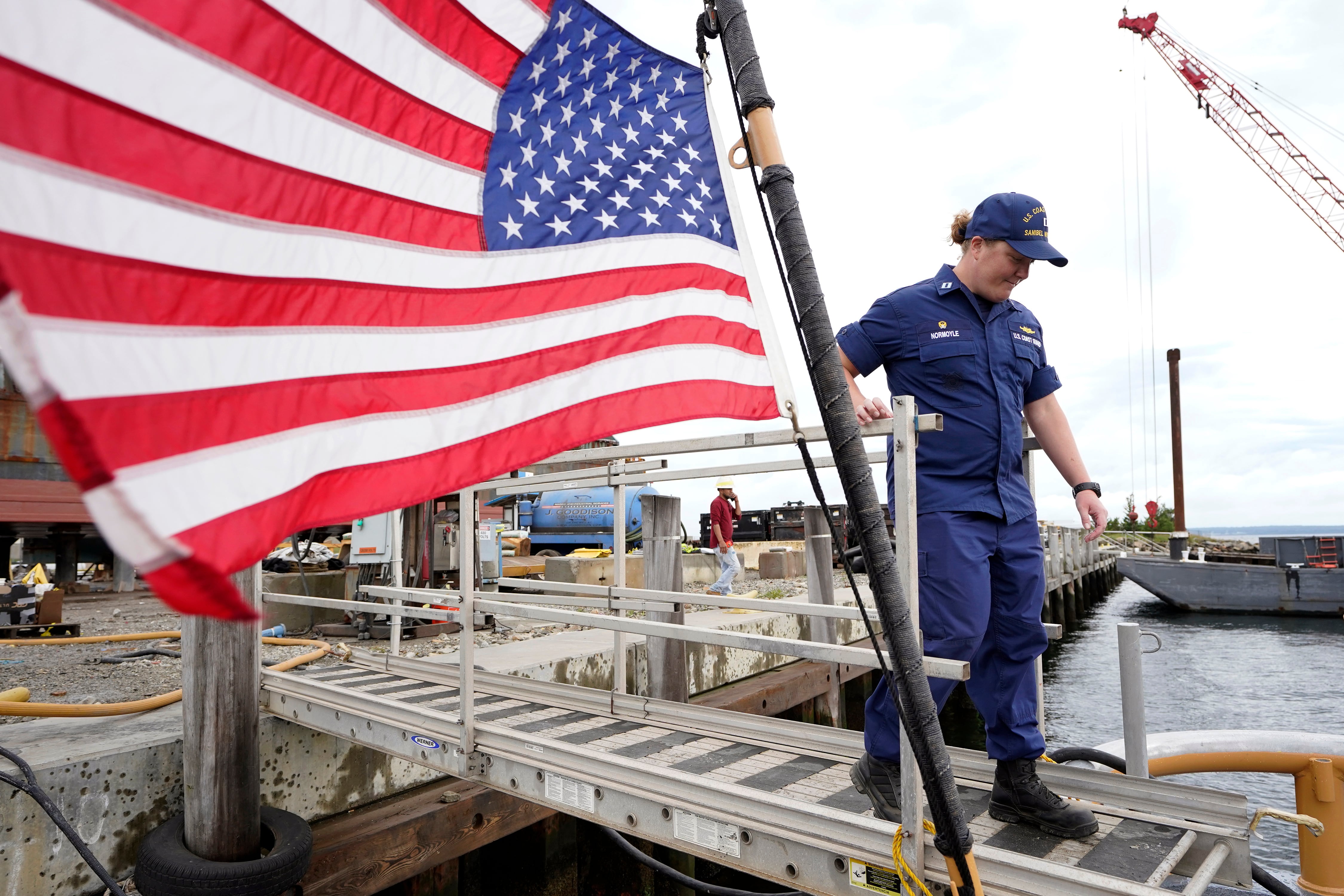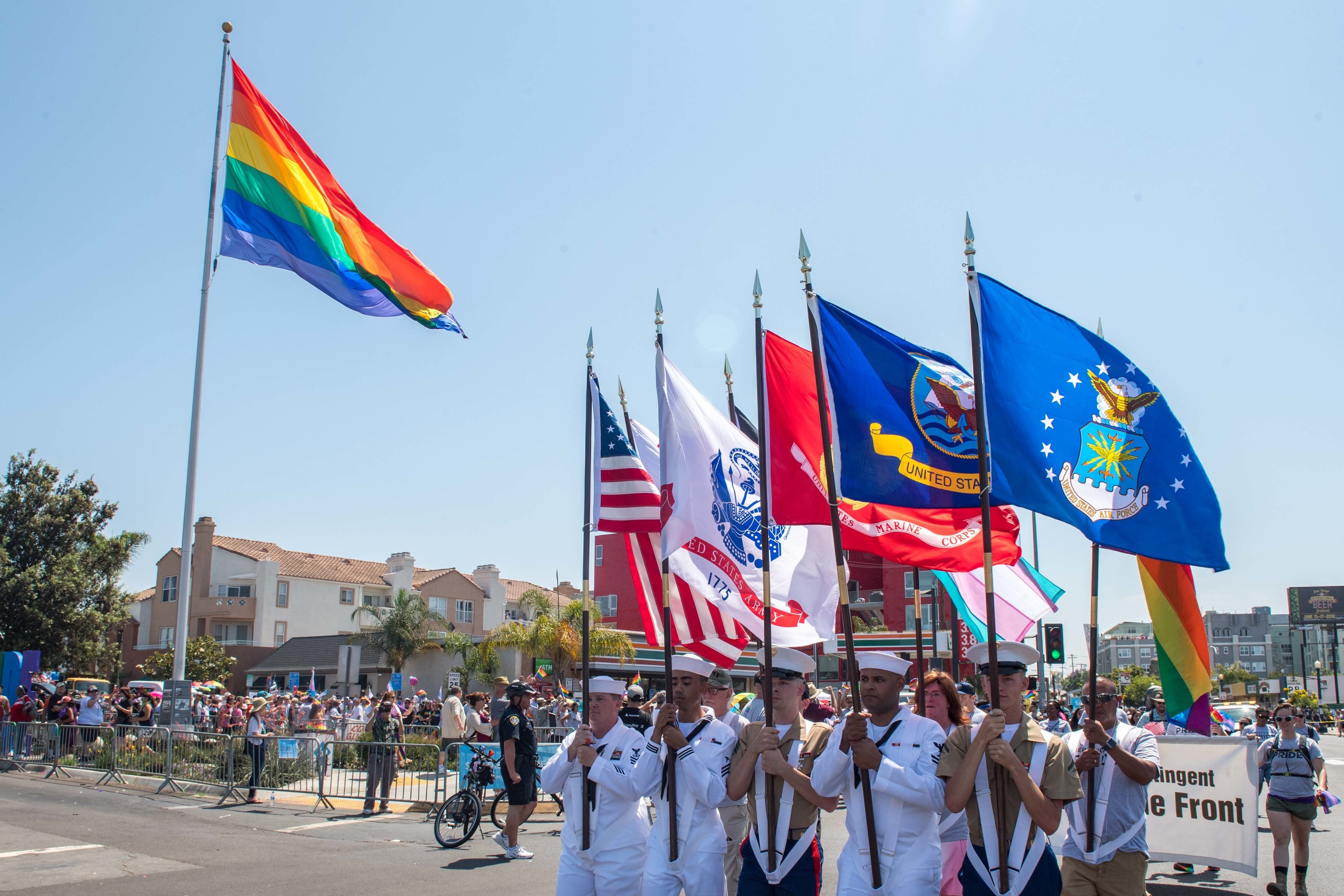Being part of the military is an act of sacrifice for individuals and their families. Civilians like me understand that on a very superficial level. All kinds of media tell us that sacrifice means you are willing to die for your country. But what military service members and your families do is much more than that. You have sacrificed your freedom for ours.
As a gay man and a civilian, I can never wholly appreciate the sacrifice of those who serve, including my father and brother. Working in the White House, hundreds of active, retired, and discharged military personnel shared with me their commitment to duty and honor in service of their country. I had to learn and to listen; I had to communicate how discrimination against one dishonors the sacrifice of all and negatively impacts national security, readiness, and unit cohesion. It is a lesson I use often now in my work with military families as executive director of PFLAG National.
As servicemembers, you know the sacrifices that you have made. You have given up a “normal” life for civilians like me. Yet for many years, a discriminatory law has forced some siblings at arms to additionally sacrifice their identity, their safety, and more.
Very few politicians know what it is to truly sacrifice one’s freedom. As a Navy sailor and diver familiar with donning the Mark V, Lt. Harvey Milk knew that sacrifice intimately. On Nov. 27, 1978, Milk was assassinated. This month, the Navy launched the USNS Harvey Milk in his honor.
As Cold War tensions increased in the early 1950s, Lt. Milk served aboard the USS Kittiwake supporting the Submarine Force US Atlantic Fleet. In 1955, while serving as a diving instructor at Naval Base, San Diego, Milk accepted an “other than honorable discharge” because he was gay. Yet he continued to serve his country, becoming one of the nation’s first openly gay elected officials. Upon receiving several death threats for being openly gay, Milk presciently recorded the statement, “If a bullet should enter my brain, let that bullet shatter every closet door.” The USNS Harvey Milk is a symbol of that shattered door in the Navy.
RELATED

Milk is not the only LGBTQ+ person to serve under constant threat of discharge. Col. Pat Thompson, who served in the Air Force and finished her career of 38 years in the Army National Guard, wrote the job description for Chief Nurse of the Army National Guard when she became the first person to hold such a position in 1986. That job description was replicated in each of the other commands during her tenure, making it possible for every person who served in every branch of the military from that point onward to receive consistent, standard, and best practice nursing care.
Of course, Thompson did not accomplish any of her feats at the Pentagon alone. Like so many who serve, she had family, a spouse, who also sacrificed in order to make her service possible. What is different is that Thompson’s spouse, Barbara Brass, could never let on or even hint that they were together. Living together in their own home, they required hidden passages. Living apart, while Thompson served in Washington, they communicated their affection in code.
Thompson sacrificed her freedom to love her spouse openly in order to ensure high quality care in the Air Force and in the California National Guard. Although this sacrifice was tested often throughout her career, at no other time was this test greater than when Thompson was chosen to preside over the review board for Army Col. Margarethe (Grethe) Cammermeyer, who had disclosed that she was a lesbian.
The result was an unavoidable discharge in 1992 with enough evidence to appeal thanks to Thompson’s handling of the process, which Cammermeyer did successfully in 1994. Her case and its reversal established a precedent that allowed for the discriminatory practice of “Don’t Ask, Don’t Tell” to be fought and eventually overturned. In “Surviving the Silence,” a recently released documentary about her service and life, Thompson reveals how her role helped set the wheels of change in motion.
RELATED

Since 2011, thousands of service members now sacrifice only as much as their fellow military siblings. Yet there are people like Navy SEAL Kristen Beck who sacrifice their identity along with appropriate medical care for themselves or for their transgender family members during their service. Clearly, victory over DADT has not been won — yet.
To learn and to support the needs of LGBTQ+ military families, PFLAG National has welcomed the voices of military families onto our board and soon into our programming. They tell us that without open service for transgender people codified into law, they must always be on their guard. Fear of harm or retribution affects trust, erecting a barrier to unit cohesion for transgender servicemembers and preventing military families from developing trusting relationships with neighbors and friends. It hampers honesty about healthcare needs, and adds costs for housing, care, education, and more that other military families do not have. Our military must eliminate barriers to open service for transgender personnel and their families. It is time for the law to change and for our country to honor the service and sacrifice of all.
Brian K. Bond is the executive director of PFLAG. As Deputy Director for the White House Office of Public Engagement and primary liaison for the LGBTQ community during the Obama administration, Brian was a key civilian working to end “Don’t Ask, Don’t Tell.”
Editor’s note: This is an Op-Ed and as such, the opinions expressed are those of the author. If you would like to respond, or have an editorial of your own you would like to submit, please contact Military Times senior managing editor Howard Altman, haltman@militarytimes.com




